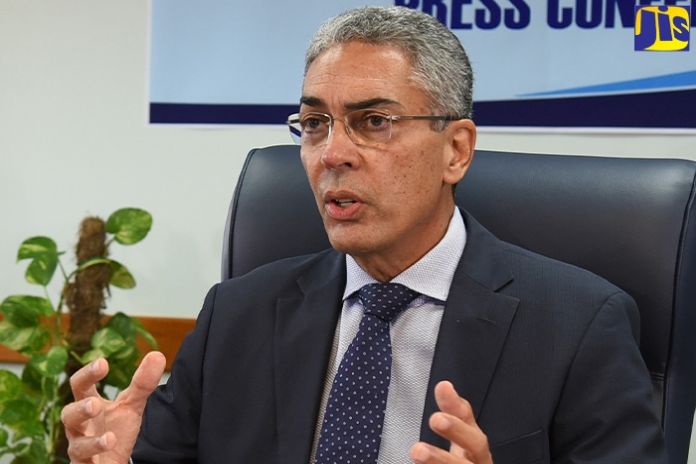By Douglas McIntosh
KINGSTON, Jamaica, (JIS) – Bank of Jamaica (BOJ) governor, Richard Byles, says the economy is projected to contract by between seven and ten percent during the 2020/21 fiscal year, as a result of the impact of the coronavirus (COVID-19).
Speaking at the Central Bank’s digital quarterly press briefing on Wednesday, August 26, the governor pointed out that this is a revision of the BOJ’s forecast range of four to seven percent earlier this year.
The governor pointed out, however, that partial economic recovery is expected to commence in the 2021/22 fiscal year, with anticipated growth of three to six percent.
“Notwithstanding the expectations for growth, the Jamaican economy is not expected to return to pre-COVID-19 levels before 2022/23,” Byles added.
He said the impact of COVID-19 on the domestic economy has been “significant”, noting that the Bank’s worsened outlook is largely associated with the virus’ resurgence in major trading partner countries, such as the United States of America (USA), and updated assessments of the impact of the crisis on some local sectors.
Specifically, he said weaker performances are expected within the transport, storage and communication, electricity and water, construction, and hotels and restaurant sectors, between June and March 2021.
“The revised outlook for transport primarily relates to lower-than-anticipated demand for public transportation, given lockdown measures and work-from-home arrangements,” the governor indicated.
Additionally, Byles said the projected out-turn for electricity and water is associated with a reduction in demand arising from the general decline in business activity, while the decline in hotels and restaurants “is consistent with a more pessimistic outlook for US gross domestic product (GDP) growth”.
The governor advised that the economic impact of COVID-19 has also adversely affected loan demand, more so consumer and personal lending than credit to businesses.
He said growth in business loans remains “relatively strong” at 16.9 per cent, as at June 2020, noting that this is slightly below the growth rate of 18.2 percent recorded in February this year.
Byles said, conversely, there was a more significant drop-off in the growth of personal loans to 10.7 per cent as at June, compared to 15.3 per cent in February.
“This buoyancy in growth in business lending has been largely driven by increased demand for working capital as well as loans that have already been in the pipeline. Meanwhile, the decline in personal loans has arisen because the outcomes of households have been hit by the downturn in economic activity,” he further stated.
Byles said while there has been a slight worsening of non-performance loans since the onset of the pandemic, “as expected”, the financial system “remains well capitalised with adequate liquidity to facilitate the continued smooth running of the sector”.
The governor posited that the prospects of the Jamaican economy continue to be characterised by heightened uncertainty associated with the COVID-19 pandemic.
He said that as the number of confirmed cases in Jamaica and overseas rises, “sustainable economic recovery could be delayed, awaiting recovery of the critical tourism sector”.
“In light of these circumstances, the Bank of Jamaica has maintained its accommodative monetary policy stance, aimed at encouraging and supporting a speedy economic recovery, once this crisis has passed,” the governor said.
Byles assured that the Central Bank “will remain focused on ensuring that inflation remains low, stable and predictable within the target range of four to six percent”.
Additionally, he said the BOJ stands ready to deploy additional measures, as needed, to ensure the continued smooth flow of liquidity to all participants in the financial system.





